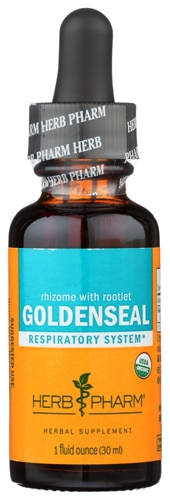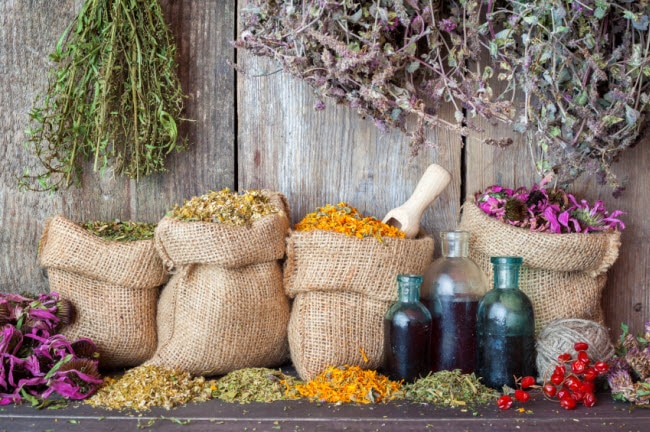You may know that chamomile has calming powers. Or that diluted tea tree oil can tame minor skin irritations. But whether you've just begun to explore the effects of herbs or you're already well-versed in the world of teas, tinctures, oils and extracts, this guide can help you safely and effectively incorporate herbal solutions into your daily life.
Herbs are available in a wide variety of forms -- fresh leaves, dried roots, liquid extracts and more -- and the methods for using each are just as varied. Let's take a look at the four most common forms and the best ways to utilize their benefits:
Teas
Teas can be purchased in tea bags or as loose leaf/bulk herbs. The benefit of buying dried herbs in bulk is that you can make your own tea. For instance, one of my favorite herbal mixtures is a combination of peppermint, chamomile, lavender and nettle leaf. To enjoy this concoction, I simply mix together in equal amounts, steep for 10 minutes, strain and drink.
Did you know? Steeping is the process in which boiling water is poured over an herb and the active ingredients are passively extracted. This method is most commonly used for flowers and leaves. In contrast, roots and barks require a more active cooking method called decoction, which involves simmering the herb on low heat for at least 10-15 minutes before straining.
Tinctures
Tinctures are another common method for utilizing herbs. When herbs are soaked in a strong alcohol medium for many weeks, the active ingredients are extracted and concentrated. This allows for a stronger concentration of the herbs to be ingested, and alcoholic tinctures allow for greater absorption of herbal ingredients. Some of the more commonly used herbal tinctures are echinacea and goldenseal. (Consult an herbal guide or your personal healthcare professional before creating and ingesting your own tinctures.)
Extracts
Standardized herbal extracts are high-quality products that list the amount of active ingredient of the herb. When you purchase an herbal product in pill form, look for the term “standardized” on the bottle to be sure that the herbal product you’ve purchased has the compound in the product that has the medicinal part of the herb. Lower-quality herbal products may not include this information because it may contain only the shavings, or the inert part of the plant.
Oils
Aromatherapy oils are essential oil extracts from plants that have therapeutic and medicinal properties. Essential oils may support your health in many different ways; for instance, scents such as spearmint or eucalyptus can be used in a diffuser to soothe minor congestion, while others such as marjoram and rosemary can be diluted and applied to your skin to alleviate aches or irritations. If you're feeling frazzled, rose or clary sage may offer a mood-lifting boost or soothe occasional stress.
Herbs offer gentle yet powerful, natural ways of supporting your health and well-being. Learn, explore, experiment and talk to your healthcare professional about how to best incorporate these plant-based solutions into your daily routine.




